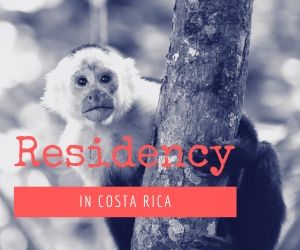The conflict between AA and Orbitz and Expedia is just the opening shot in attempt to make it very difficult for a traveler to find the cheapest fare. An article about this was in the online edition of Time today. If AA is successful and other major carriers follow their lead you will have to check every airlines website, that flies to your destination, individually to find the best fare and most convenient schedule..
Quote:
Thursday, Jan. 06, 2011
Why Travelers Could Lose in American Airlines' Online Ticket War
By Kayla Webly
An ongoing battle between American Airlines and online travel agents Orbitz and Expedia has played out for weeks with more fervor, unlikely alliances and backstabbing than the last season of The Apprentice. When American and Orbitz failed to reach terms on a new distribution agreement, the airline ordered its schedule dropped from the popular travel website on Dec. 21. Just a few days later, pre-empting its own distribution dispute, Expedia hid American's listings from search results, making it difficult but not impossible to book an AA flight on the website. Then, once Expedia's agreement with American ended Dec. 31, it dropped the carrier from the site, calling the airline's strategy "anti-consumer and anti-choice."
There's no question that part of American's motivation is to cut costs, which George Hobica, founder of Airfare Watchdog, says the airline is "desperate" to do. In bypassing the online travel agents, American saves on distribution costs, but can also raise its ticket prices more easily since its fares won't be displayed directly beside the fares of their competitors. (See the top 10 travel moments of 2010.)
And the airline may also be taking a lesson from its Dallas neighbor, Southwest Airlines. Southwest requires consumers go directly to its website to book a trip. That makes it more difficult for passengers to comparison shop, but Southwest has won customer trust, and loyalty, by delivering consistently low fares for decades rather than make consumers hunt them down. Capturing customers on it own website, also allows Southwest to get additional revenue from the ancillary items such as rental cars and frequent flier credit cards — a revenue stream American has undoubtedly taken note of.
At the heart of this kerfuffle is American's Direct Connect, a software system it has been pushing since December 2009 that bypasses the current global distribution systems (GDS) such as Amadeus, and Travelport that travel agents and web sites currently use to download schedules and fares. One GDS, Sabre Holdings Corp., a former American unit that was spun off in 2000, said on Jan. 5 that it will stop carrying American's flight information in August — a month ahead of when its contract with American is due to expire. Sabre's holdings include Travelocity.
Direct Connect, which Orbitz and Expedia have refused to adopt, would allow American to gain more control over its airfare search results. It all fits very nicely into American's goal to get middlemen to pay to distribute its listings, not the other way around. This way the airline could choose, at any moment, which fares and schedules to display and promote options that could generate more revenue for the company by letting it sell add-ons such as seats with more legroom. But it could also mean higher prices for travelers.
For its part, American insists its model will be better for customers. Cory Garner, American's director of distribution strategy, highlighted a perk of the system, saying customers would be able to view the total trip cost up front rather than be hit by fees on the day of travel. "Direct Connect gives customers visibility and control of their entire trip, especially the cost of the trip, as opposed to today's world where they can see only base fares," Garner told TIME. "Certainly there are disputes in the marketplace now, but I believe these are just growing pains." (See 20 reasons to hate the airlines.)
Still, American seems willing to lose passengers to get its way. "They're taking a huge risk here," says Kevin Mitchell, chairman of the Business Travel Coalition, which represents corporate travel departments. In a statement emailed to TIME, Orbitz spokesman Brian Hoyt reported the company generated about $800 million in sales for American in the last year. Based on that figure, Henry Harteveldt of Forrester Research estimates the much-larger Expedia generated about $1.6 billion in sales for American last year. (AA has total sales of more than $20 billion.) But in its Dec. 29 press release, American says it has seen a year-over-year increase in overall ticket sales since removing its listings from Orbitz — although traffic is generally improving for all major airlines.
Orbitz and Expedia maintain they will do just fine without American's business, making up for lost revenues by selling tickets for the airline's competitors. While Hoyt reported American accounts for about 5% of Orbitz's business, industry analysts suggest American accounts for as little as 1% of Expedia's business. That's because about 80% of Expedia's business comes from non-air products like travel insurance, hotels, cruises and rental cars. "Expedia has already diversified such that no single company can have an impact on their bottom line," Harteveldt told TIME. However, both Orbitz and Expedia's shares fell on Monday after Expedia dropped American.
For its plan to succeed, American has to convince its competitors to do likewise, which would force United, Delta and the others to create their own system, like Direct Connect and similarly thumb their noses at other distribution systems. It would not only mean the end of the price transparency that disciplines fares but it also could end some things that online travel agents do better than the airlines: flexible date search, last-minute deals on packages and coordinating multi-city trips where flying on different airlines for different legs is often more cost-effective. "It's already not that easy to find cheap airfare," says Airfare Watchdog's George Hobica. "This would just make it that much worse."
An industry survey conducted by the Business Travel Coalition at the end of 2010 shows, not surprisingly, that almost 98% of travel industry professionals don't want American's model. That doesn't necessarily mean the airlines will listen. "The reason we're fighting this is because this is an industry where competitors are often like lemmings," Mitchell says. "American used to be the largest in the world, so they're used to over-reaching and trying to impose their will on the marketplace." (Comment on this story.)
American happens to be very good at that sort of thing. The company, which is still in active discussions with Expedia, Orbitz and Sabre, has never been the kind that backs down from a fight. It has waged fare wars with competitors to protect its turf; it has used FAA regulations and legislation as a weapon against potential new rivals such as Virgin America. It has battled furiously and fractiously with its own employees. If the travel agents want a battle, American can certainly provide one.
_________________

Pura Vida

Only Irish coffee provides in a single glass all four
essential food groups:
alcohol, caffeine, sugar and fat.
Alex Levine











